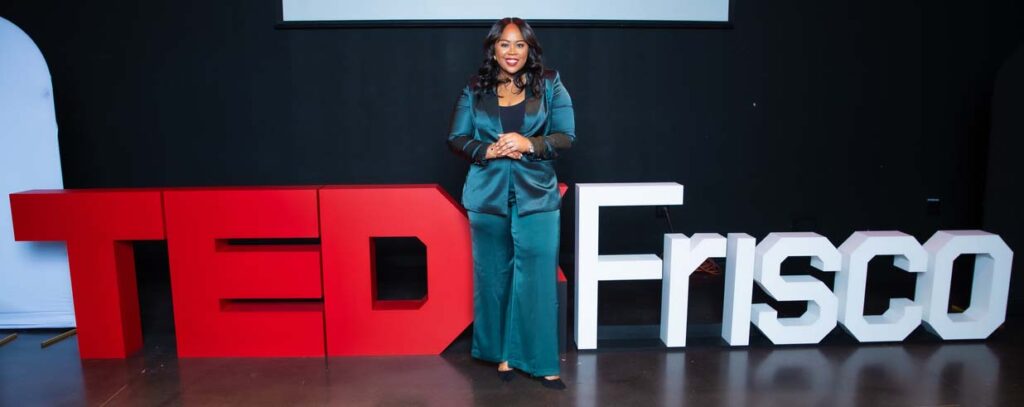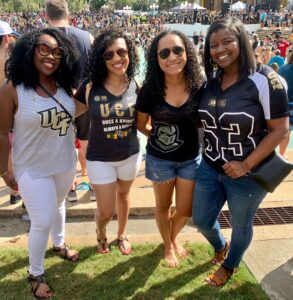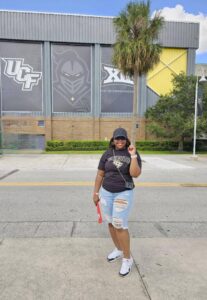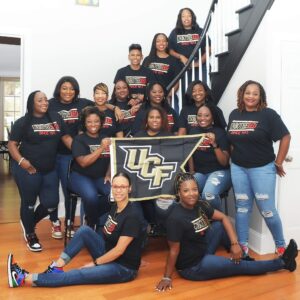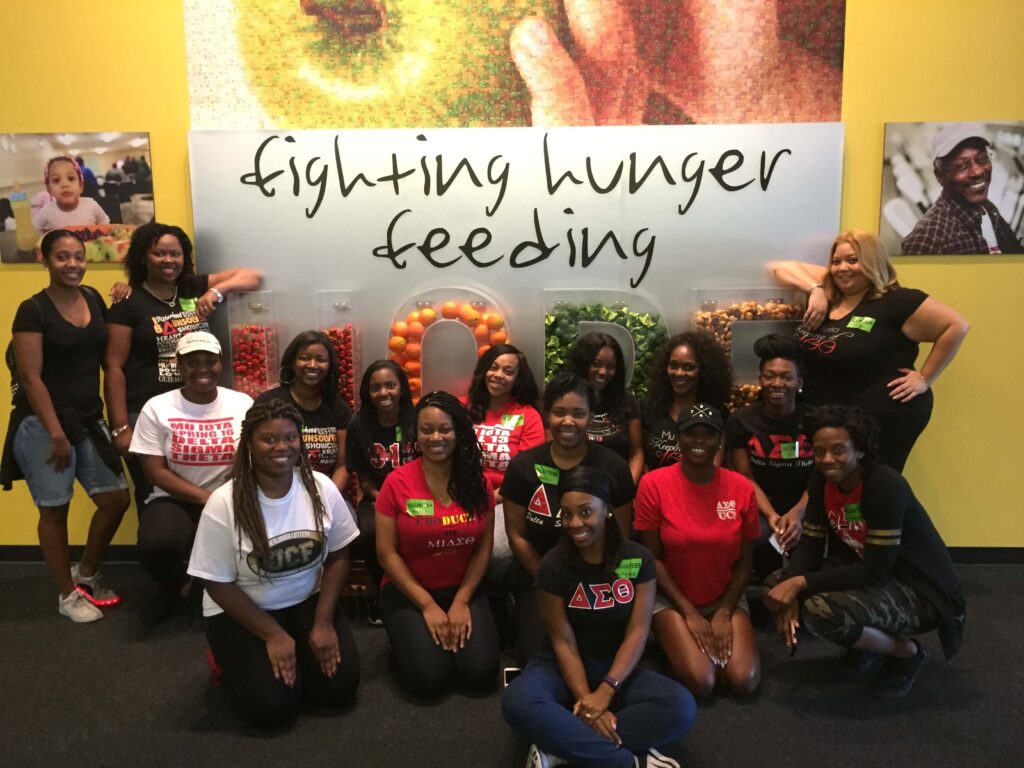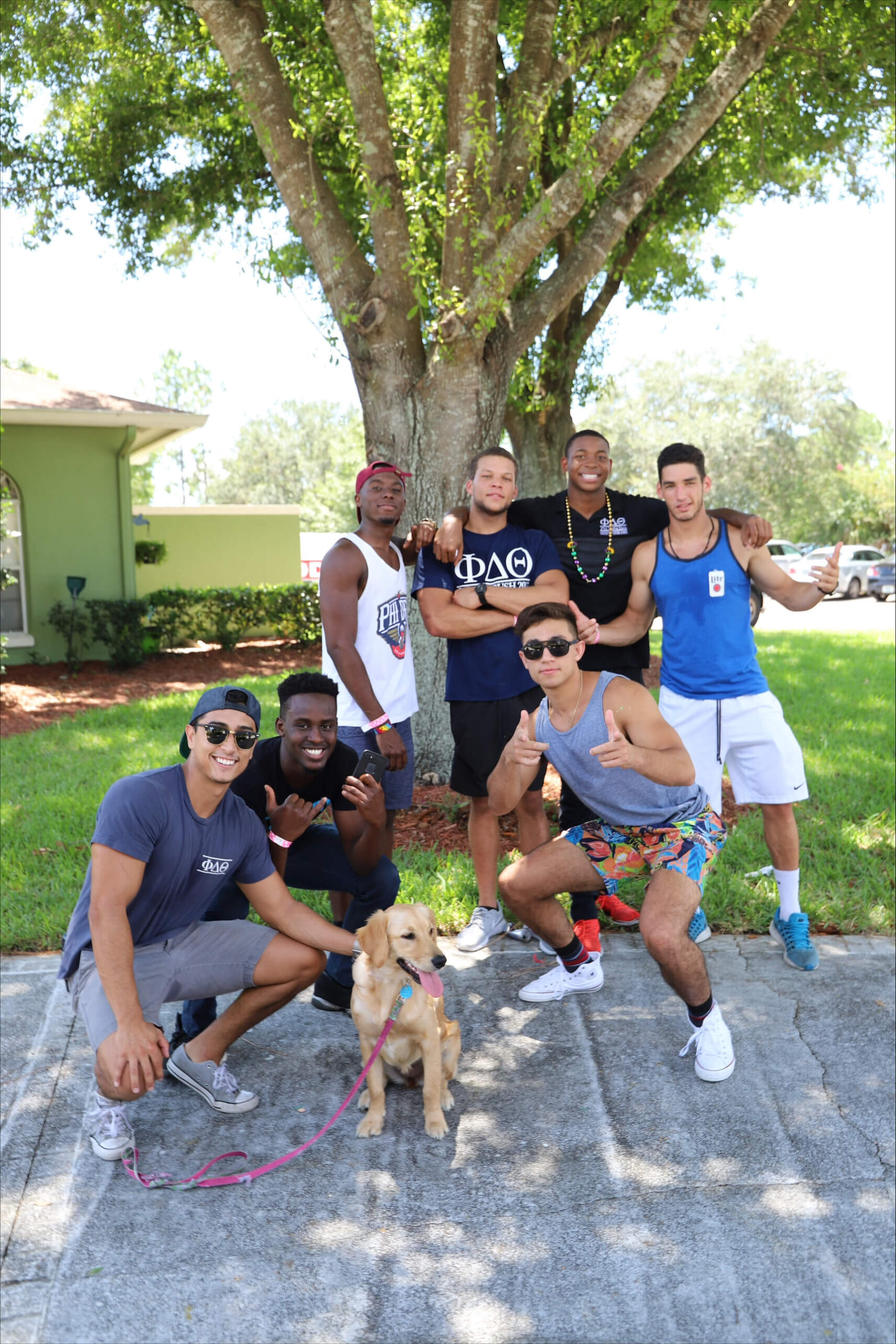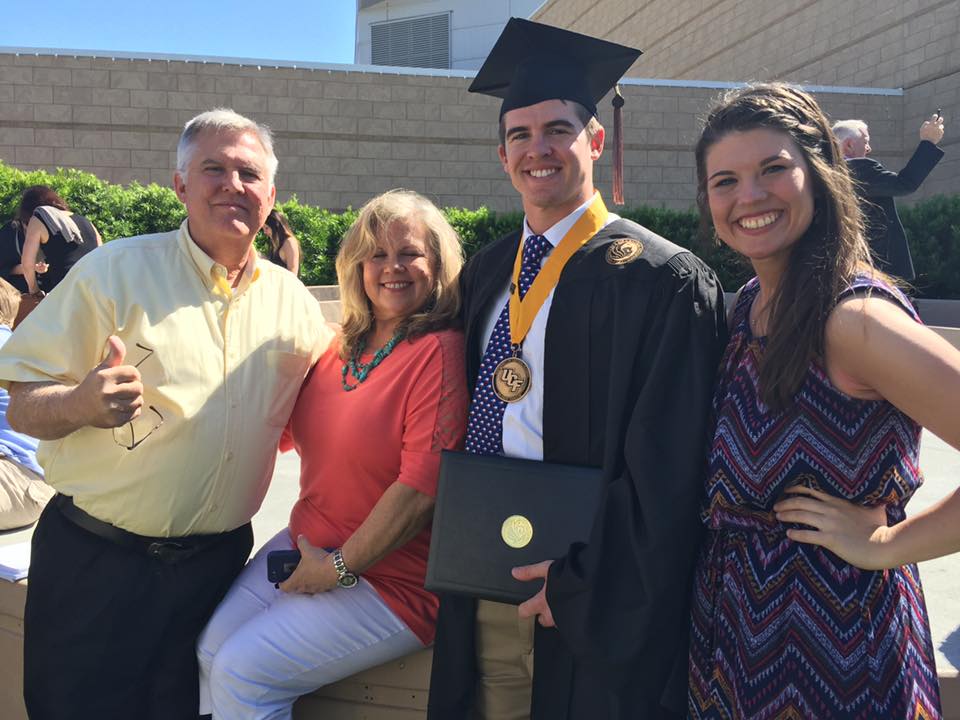Changing the Narrative: Toni Lowe ’02 Shares Her View from C-Suite
Toni Howard Lowe is the global chief diversity, equity and inclusion officer for Huge, Inc.,a design and innovation Interpublic Group company supporting some of the world’s most ambitious companies. Her role in the C-suite is the latest stop on an ascending trajectory for Lowe since graduating from UCF.
Lowe grew up in Tampa as a self-proclaimed “performing arts kid.” Her mother, recognizing her only child’s gifts, encouraged her participation in the arts, by enrolling her in Blake High School, a magnet performing arts school.
“I was involved in everything,” Lowe says. “I was Miss Blake High School, and belonged to every organization I could belong. In many ways, who I am today and my quest for equity for my community began with Blake High School.”
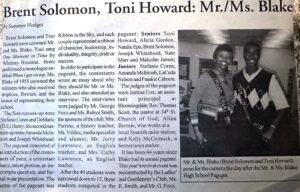
The then-segregated high school opened its doors in 1956 as the Don Thompson Vocational High School. Just a few years later it was renamed Howard W. Blake Comprehensive High School in honor of African-American educator Howard Wesley Blake, a local educational activist. The Hillsborough County school continued operating an illegally separate public school system until 1971 even though the landmark U.S. Supreme Court case Brown v. Board of Education was decided years earlier.
For a time, the school shuttered its doors in response to the separate but equal ruling leaving the Central Tampa community without a neighborhood school for its burgeoning pre-dominantly Black population. However, in the fall of 1997, the Howard W. Blake High School name was resurrected on a new building and reopened in its former community as a magnet high school for the visual, communication and performing arts.
Lowe’s grandmothers were an integral part of that historical restoration as 1959 alumni.
Lowe’s family has called the Tampa area home for generations. Her paternal and maternal grandmothers were best friends and grew up on the same block. The pair met and married Air Force soldiers who were bunk mates. The couples’ first-born children also grew up together and later developed a love story of their own that culminated with the birth of Lowe.
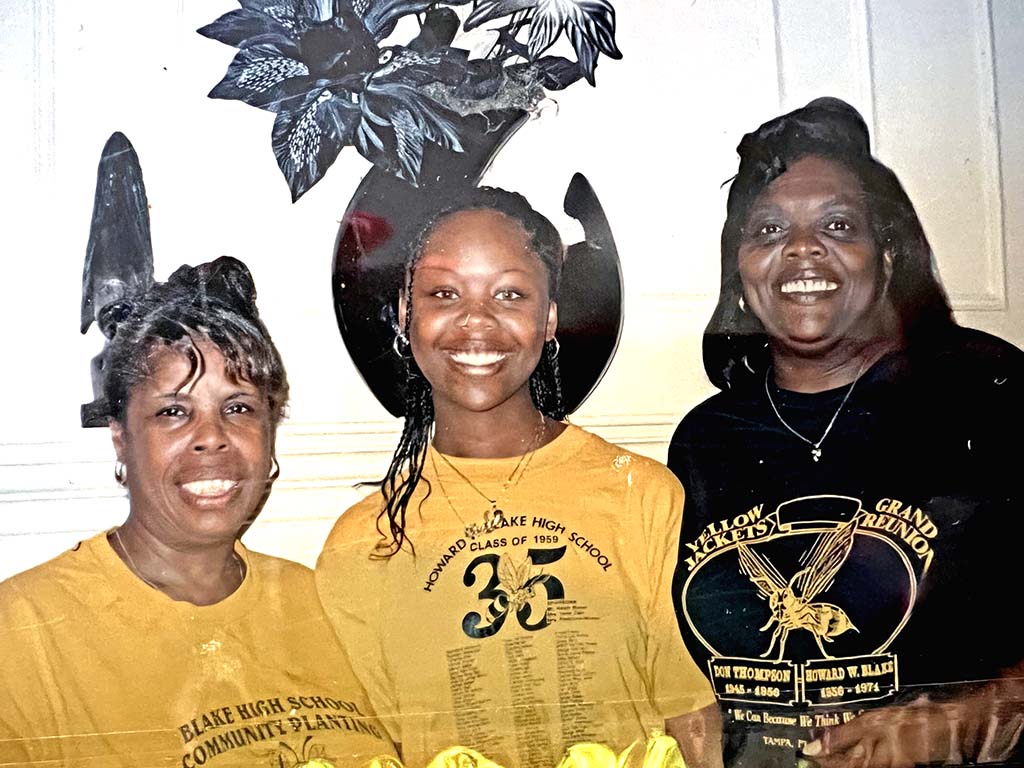
Lowe says this special, intertwined familial love inspired her later. It was her grandparents’ belief in the power of education and their tenacity to fight for it in their own community that would later bolster Lowe’s confidence and commitment to equity work.
Lowe’s mother did not want her brilliant daughter’s future limited to Hillsborough County. So long as Lowe could remember, her mother had drilled into her the importance of higher education.
When the time came to graduate from high school, Lowe says, “my mom made me apply to every school in the state of Florida because I was eligible for a Bright Futures scholarship.”
But Lowe originally thought she wanted to go further.
“I wanted to see the world, I wanted to go as far as I could.” Despite Lowe knowing the chances of going as far as she could (i.e., out of state) were slim, youth and impertinence made her apply for out-of-state schools anyway.
Lowe’s parents had done what they could with their resources. They had never gone to college but they told their daughter that they would cover everything, but she would have to stay in Florida for school.
“So here I am, I’ve been accepted at all of these out-of-state schools, and then my parents gave me that news,” Lowe says. “I told my mom, OK, I’m going to go to FSU (Florida State University) because it’s the furthest away from Tampa, thinking my decision was punishing my parents.”
In her wisdom, Lowe’s mother told her she could go to FSU, but she had to visit at least three other schools in Florida. Her first school was USF in Tampa, and Lowe already knew she wasn’t going to go to school so close to home. Her second choice was UCF. Lowe never made it to visit the third school.
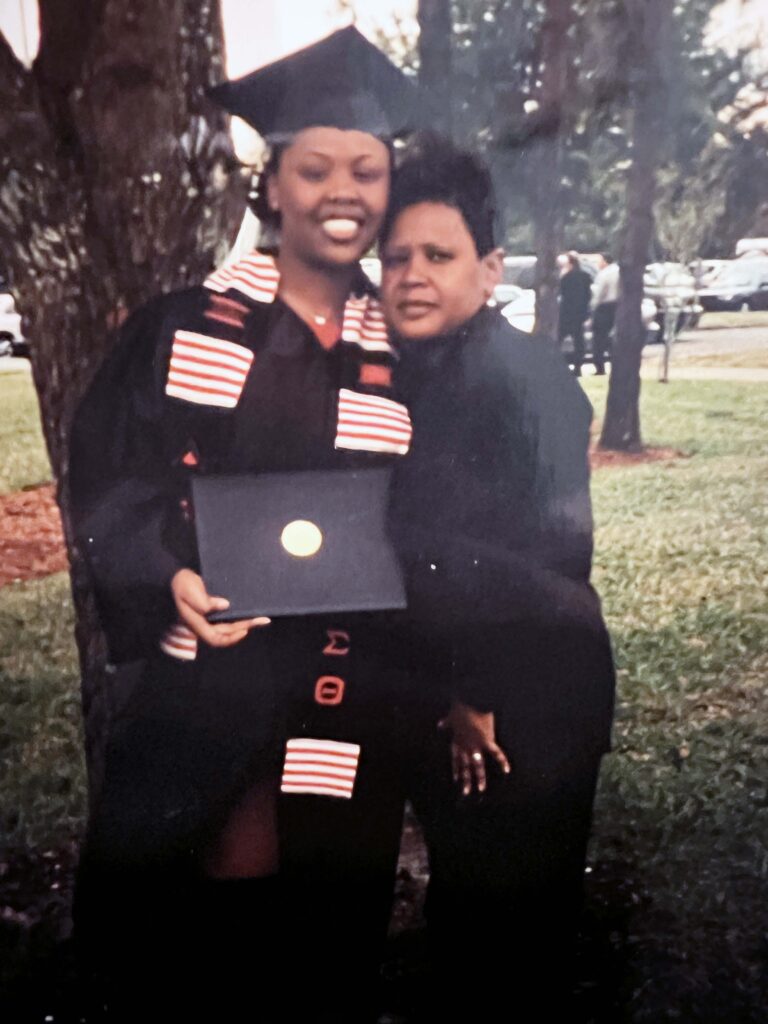
“My mom knew that I was a decisive kid,” Lowe said, “and the moment I stepped foot on UCF’s sprawling new campus, I wanted to go to the administrative building that day and fill out whatever forms I had to fill out to change my decision, because I was just so in love with UCF.”
Lowe entered UCF in the fall of 1999 with a plan to major in journalism. However, through partnering with UCF’s career center and multi-cultural resource advisors, she got the opportunity to test out interesting fields including a news-related internship that would lead her very quickly to change her major.
Another internship during her junior year would spark her interest in the burgeoning field of diversity as a component of human resources. That internship was with a local marketing firm that partnered with the school, and that firm had a division that was focused on diversity, Lowe says, but they weren’t using that terminology back then. The firm was working on a project for one of Orlando’s biggest theme parks which enlisted Lowe to lead focus groups on why the theme park wasn’t attracting students of color to their engineering program.
As a young student, “I couldn’t believe that this was a real job,” Lowe says. Not only did she lead the focus groups, but she was also tasked with finding students of color to participate in the discussions. The internship would lead Lowe to develop relationships with individuals at the theme park’s corporate level, where she gravitated toward a new career in human resources.
In the Fall of 2002, Lowe graduated with a Bachelor of Art in Interpersonal Communication and quickly began building a career in human resources. As she rose through the ranks, and over many years, Lowe says there were certain beliefs that she would have to unlearn. One of those beliefs, she says, is sometimes called the “Black tax,” where individuals like Lowe feel the pressure or the need to constantly prove their worth in the corporate world.
“It was drilled into my head when I was younger,” Lowe says. “Work twice as hard as everyone else, keep my head down. What I have learned since then is that I had to work smarter, not harder.”
Lowe says she was exhausted by the time she had reached the mid- manager level in her career. She began to reevaluate how to best be her authentic self, yet continue to advance her professional goals.
It might have started with her hair.
“I had an executive tell me before I was scheduled to make a high-level presentation that he really liked it when I wore my hair short and straight.”
Lowe had just started exploring her natural, curly hair.
She may have misunderstood the request, or perhaps she understood perfectly. He was asking her to straighten her hair for the presentation.
“I made my hair as big and curly as I could,” Lowe says. “And I still killed it. But many people don’t have the luxury to be so brazen as I was that day. Sometimes, they come from marginalized communities and are the only person supporting their families. And while they would love to show up with their big curly hair, straightening it is just easier.”
These types of experiences motivated Lowe to become what she calls a “professional disrupter”.
Lowe’s career would naturally evolve from human resource to compliance, to employee relations and then land her in equity work.
“I was exhausted that we were spending so much time responding to discrimination charges, or responding to compliance and employee issues,” she says. She felt that she could accomplish more on the front end of the problem, which led her to the DEI space, where she could be proactive rather than reactive with workplace challenges.
She began moving into bigger roles at world-class organizations like, Raytheon, USAA, McAfee, and Ernst and Young, honing her skills in diversity, equity, and inclusion.
In her current role at Huge Inc., Lowe works both internally to improve diversity, equity and inclusion throughout the company’s culture and practice and externally through the clients and their organizations with whom Lowe works.
“When I first arrive at any company as an equity leader, we look at the company data,” Lowe says. “It’s there that we get the best information about the representation and landscape of the people who are there – not just race and ethnicity, but gender, sexual orientation, religion, and other quantifiable data.”
Then, Lowe and her team determine if there are any gaps in the data that need to be addressed. And then, Lowe says, “We determine if there are ‘rocks’ that must be overturned to get a honest picture of the needs of the company to ensure equitable progress. We let the data and the feedback tell the truth about the health of the organization, not what we believe our values to be.”
Many of the companies she has worked with and worked for have been around for a long time, Lowe says.
“When they were established years ago, they were not fractionally or equitably built for people like me. So, there’s a good chance that a company that old still has discrimination in its crevices, despite its best intentions. And these same companies know that companies that are far more diverse and inclusive, are far more productive, and therefore perform better.”
Lowe says that even though today certain practices are protected – for example, a woman cannot be discriminated against because of her gender – there are certain discriminatory internal practices that companies get away with all the time.
“For example, it is a little crazy for me to think that the CROWN Act is just happening,” Lowe says. The CROWN Act of 2023 demands protection against race-based hair discrimination in the workplace and in K-12 public and charter schools based on hair texture and protective styles. So far, the legislation has been enacted in 23 states.
Much of the discrimination that the CROWN Act is combatting is not as overt as when Lowe’s manager told her he liked her hair straight and short, she says.
“The system is much smarter than that,” Lowe says. “But my job is to work with these companies to make sure that their outward points of view are the same values that they are projecting internally.”
In addition to her work at Huge Inc, and outside of her day-to-day professional role, and because of Lowe’s years of championing diverse professionals she has been an invited lecturer, panelist, instructor, workshops facilitator on issues of equity, inclusion and diversity at multiple institutions of higher education, corporations and professional organizations. Lowe’s insights have also been featured in many national media outlets including Black Enterprise, Forbes and Business Insider.
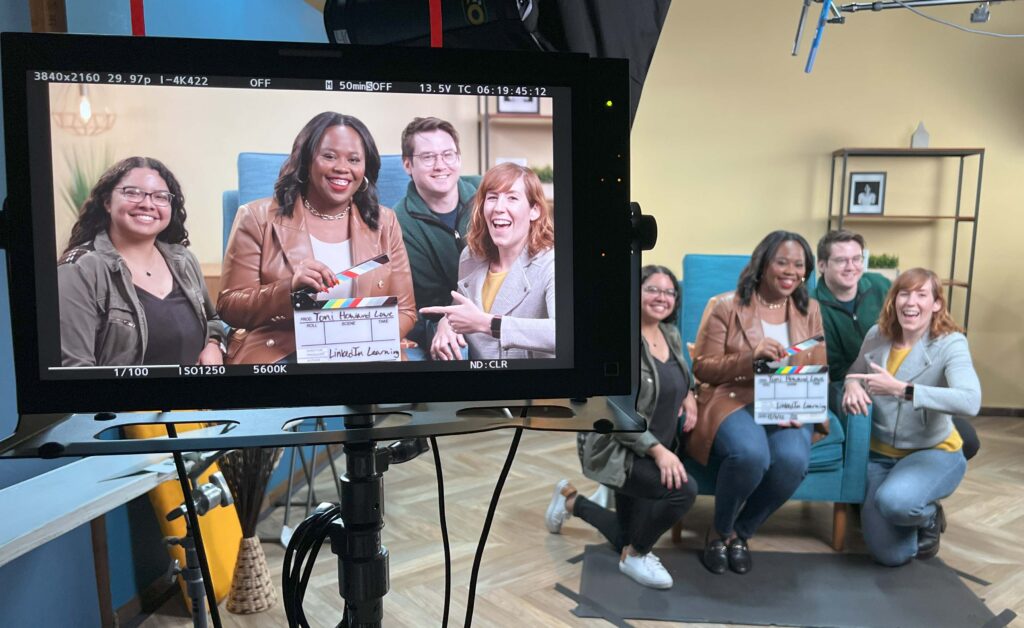
Most recently, Lowe is highlighted as an industry expert who is a published instructor on LinkedIn Learning where her courses (Dealing with Microaggression as an Employee, Overcoming DEI Leadership Challenges) have garnered over a half million learners globally. Lowe was named a Top 100 Diversity Officers by National Diversity Council in 2022 and sits on CNBC Executive Workforce Council an organization that comprises of prestigious HR & Diversity leaders who are the guardians of culture for some of top companies in the US. In March, her first Tedx Talk was released that focuses on transforming workplaces by deconstructing the influences of colonization.
“Every day I know my work honors my grandparents’ legacy,” Lowe says. There tenacity, growing up in a time where society was not equitably designed for them to thrive makes her believe they understood the concepts of diversity, equity, and inclusion, even if they didn’t know those exact words or live to experience it. They never had the opportunity to go to college, but each had careers that served the community, from social work to the police force, childcare to health care, they were activists in their own right because they were community trailblazers well before there was a profession to define it. It’s not lost on me that I stand on the shoulders of invisible giants,” Lowe says.
As a UCF twenty-year alumna now, Lowe sometimes looks back on her time at UCF through the lens of her profession now. Over the past 15 years or so, she has missed maybe four homecomings.
“I am still very passionate about UCF and consider myself a very engaged alum (as a former Dallas UCF Alumni Chapter Board member)” Lowe says. “But whenever I come back for Homecoming, I am hoping to see more recognition for the amazing Black students who’ve graduated from UCF and are changing the world. And, there are so many.
“During my time at UCF, I was a leader in my sorority, Delta Sigma Theta, a leader in AASU (African American Student Union), and Volunteer UCF, and yet, I don’t see myself reflected when I go back to campus. I became the person that I am today in large part because of my time at UCF and the amazing community I built while there, but I want people to know there are so many UCF alums that look like me who are also making an impact.
“With the challenges happening in Florida, I am proud that I attended a school that continues to be among the more progressive universities in the state, but there is still more work to do. My hope is that, through this spotlight, there’s a young girl coming out of Tampa or anywhere in the surrounding cities who knows that she can choose UCF and still make it to the C-Suite. I look forward to hearing from that girl in the future because her story matters as much as mine.”
